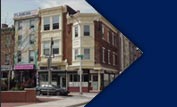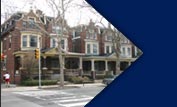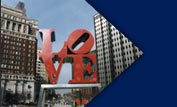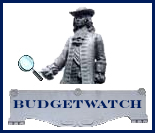- Home
- About
- News
- Tax Reform
- Ethics Reform
- Budget Reform
- Reformer’s Roundtable
- Contact Us







City Tax Collection Upon Reflection
 Preliminary numbers for the last fiscal year show that total tax revenues dipped slightly and fell short of budgeted estimates. But BUDGETWATCHERS need not be concerned…yet. In the fiscal year that ran from July 1, 2007 to June 30, 2008, the city collected $2.41 billion in locally generated taxes. Collections for many city taxes grew from fiscal year 2007 and exceeded budgeted estimates. But, the shifting of some Real Estate Tax revenue to the School District, the sagging real estate market, and the peculiarities of the befuddling and job-killing Business Privilege Tax were responsible for the drop off.
Preliminary numbers for the last fiscal year show that total tax revenues dipped slightly and fell short of budgeted estimates. But BUDGETWATCHERS need not be concerned…yet. In the fiscal year that ran from July 1, 2007 to June 30, 2008, the city collected $2.41 billion in locally generated taxes. Collections for many city taxes grew from fiscal year 2007 and exceeded budgeted estimates. But, the shifting of some Real Estate Tax revenue to the School District, the sagging real estate market, and the peculiarities of the befuddling and job-killing Business Privilege Tax were responsible for the drop off.
First, the good news.
The Wage Tax, which accounts for nearly half of the city’s locally generated tax revenues, brought in $1.21 billion, an increase over last year’s $1.17 billion. The latest data from the Bureau of Labor Statistics show that while the city is still generally lagging in job growth compared to the nation and surrounding jurisdictions, the city has experienced strong wage-rate growth. Thus, even as the city has improved its competitiveness by reducing its Wage Tax rate — now below 4.0 percent for residents for the first time since the nation’s bicentennial — wage tax revenues have continued to increase.
The Real Estate Tax, which accounts for 16 percent of city tax revenues, generated $404 million in fiscal year 2008, an increase over the previous year’s collections of $396 million. This is despite the fact the city shifted a portion of its Real Estate Tax revenues to the School District. The move effectively lowered the city’s Real Estate Tax rate and increased the district’s tax rate — changing the distribution without changing the overall tax rate — so that now the city only receives 40 percent of Real Estate Tax revenues. Had this shift not occurred, city collections would have been approximately $30 million higher.
The Sales Tax, which generates about 5.0 percent of city tax revenues, saw little change this year. The levy generated $136 million in fiscal year 2008, up from $134 million the previous year. The increase suggests that despite the weakening national economy, Philadelphians are continuing to spend somewhat freely.
The city also generates smaller amounts of revenue from the Parking Lot Tax, Amusement Tax, Valet Parking Tax, and Outdoor Advertising Tax. Combined, these taxes generate 3.0 percent of total city tax revenues. Each of these taxes saw increased revenues in fiscal year 2008, with the most compelling reason to cheer coming from the Amusement Tax, which benefited from playoff appearances by the Phillies and Flyers as well as high attendance for the 2008 baseball season.
The bad news comes from two specific taxes, which both saw a falloff in revenues in fiscal year 2008.
The Real Estate Transfer Tax, which is a levy on the sale and purchase of property accounting for nearly 8.0 percent of city tax revenues, saw a significant decline in fiscal year 2008. Comparative national data suggest that Philadelphia has not suffered as badly as other jurisdictions in the real-estate crunch, but with the average house staying on the market for a record number of days and prices dipping in city neighborhoods, collections of $186 million in fiscal year 2008 were short of the $219 million collected in the previous year. Even though the city administration estimated that Real Estate Transfer Tax revenues would be off this year, actual collections came in about $11 million below expectations.
The Business Privilege Tax, which comprises both a levy on net income and on gross receipts and brings in about 18 percent of the city’s total tax revenues, saw a big drop. Fiscal year 2008 collections of $404 million are down from $438 million the previous year. The city has been reducing the rate of the Gross Receipts Portion of this tax for years and, despite the decrease in the tax rate, the city has enjoyed an increase in tax collections. This spring, the city enacted legislation to phase out the Gross Receipts Portion and enact the first-ever reductions to the Net Income Portion of the tax.
Looking to the future, the current fiscal year 2009 city budget counts on raising a total of $2.43 billion from locally generated taxes — an amount almost identical to the past year’s collections. While estimates for future collections of the Wage Tax, Property Tax, Sales Tax, and all of the city’s minor taxes seem reasonable, predictions for Real Estate Transfer Tax and Business Privilege Tax revenues require monitoring. The budget counts on generating $187 million from the Real Estate Transfer Tax, which would require tax revenues to essentially match last year’s numbers after two years of decline. The budget also counts on generating $442 million from the Business Privilege Tax, which may be overly optimistic given the performance of the tax this year.
Despite national economic woes and some local worries, tax collections in Philadelphia have held rather steady. Total collections from fiscal year 2007 to fiscal year 2008 are off a bit, but would reflect an increase if we factor in the shift of Real Estate Taxes to the School District. Future tax collections will depend on which is the more significant influence: the wage-rate growth and relatively free-spending that has fueled the strong performance of the Wage Tax and Sales Tax or the real-estate crunch and economic slowdown that have caused Real Estate Transfer Tax and Business Privilege Tax to wane.
